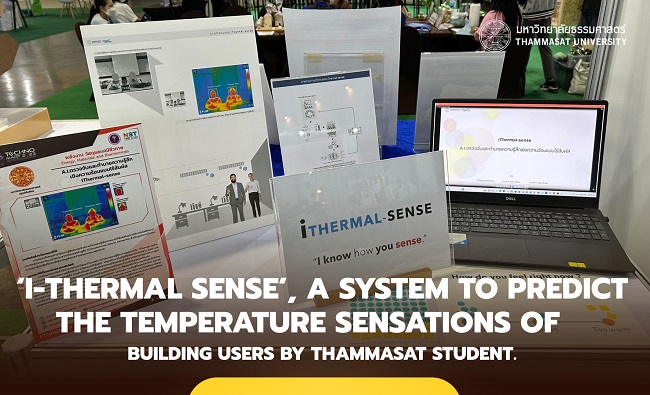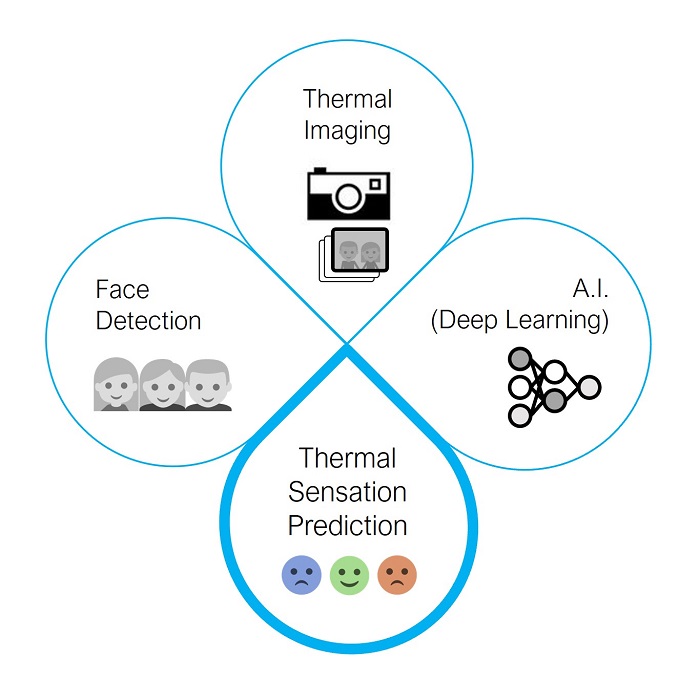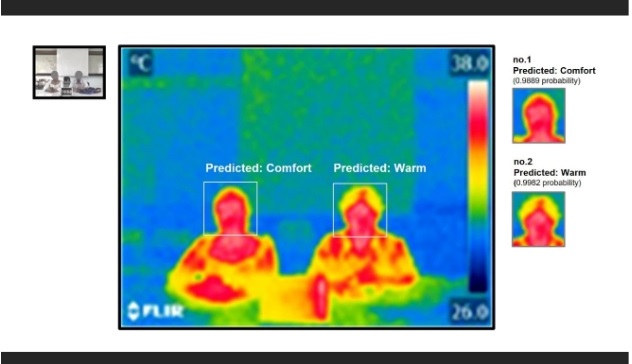‘I-Thermal Sense’, a system to predict the temperature sensations of building users by Thammasat student.
A Ph.D. student from Thammasat Design School developed a contactless operation for detecting and predicting the temperature sensations of building users.
Wednesday 25 October 2023

Kaweewan Intarachatorn, a Ph.D. student from the Faculty of Architecture and Planning, Thammasat University under the supervision of a team of advisors led by Assoc. Prof. Daranee Jareemitr and Sitapa Watcharaphinchai from the National Electronics and Computer Technology Center developed a contactless operation for detecting and predicting the temperature sensations of building users. It is operated without interfering with various activities by collecting physiological data using remote infrared photographs together with advanced AI technology to help in image processing. Thus, providing greater accuracy in classifying and predicting the temperature sensations of building users, being able to suppress limitations of existing technology, and with the longer installation distance of the equipment, making it possible to detect and predict the results of a number of people at a time.
The research team used deep learning which is an advanced artificial intelligence technology in the form of artificial neural networks and thermal facial images from an infrared camera in evaluating the temperature sensations of each individual. Once image data from the infrared camera is received, the system will detect faces that appear in the image where it then classifies each person's sensation based on the detected faces from infrared temperature data. It later displays the results of an individual assessment of the temperature sensations of everyone in the area detected by the system.

All of the abovementioned is the origin of "I-Thermal Sense: an AI system to detect and predict the temperature sensations of building users during actual usage," which emphasizes contactless operation that is convenient for building users. For laboratory test results, I-Thermal Sense has evidenced its excellent performance in individual level predictions and its ability to satisfactorily deal with problems of individual differences. It can accurately predict the temperature sensations of a newly detected person. Even if the detection is performed from a distance and the test subjects are of different facial angles, hairstyles, or wearing glasses.

Currently, the research team is in the process of developing this welding technology with the air conditioning control system to further expand into commercial use by concentrating particularly on usage in office areas and educational institutions first. Such technology helps increase efficiency in building management, and both creates a comfortable environment for building users and reduces air conditioning energy consumption.